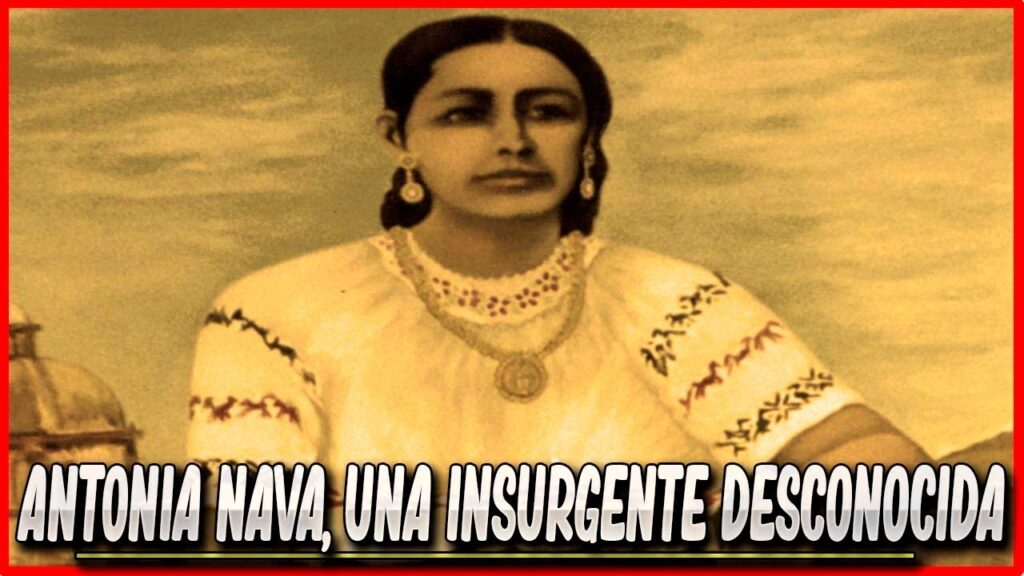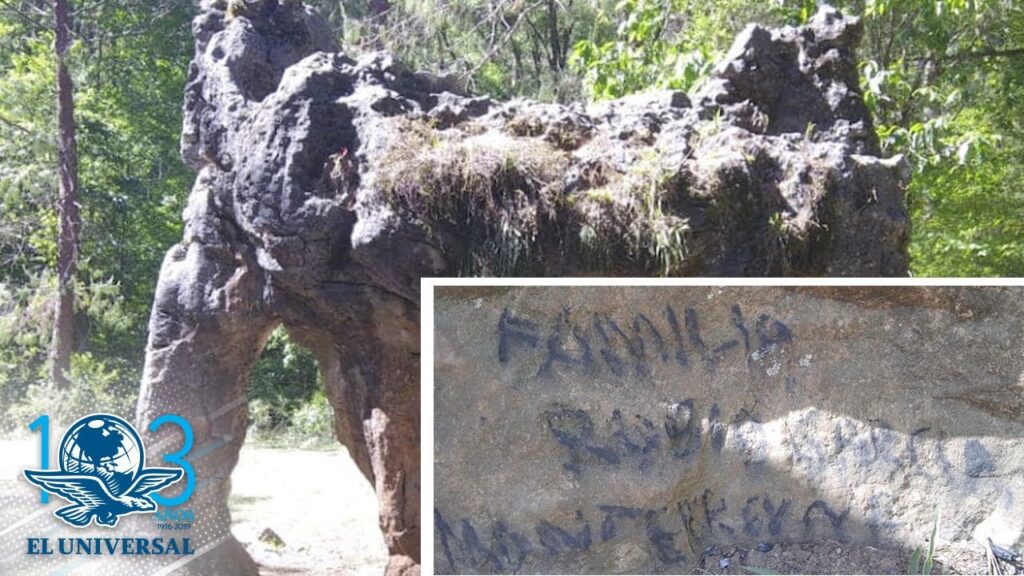Unveiling the Story of Antonia Nava: An Unsung Heroine of Mexican Independence
History often remembers the grandiosity of male figureheads, but the annals of Mexico’s turbulent past hold tales of courage that belonged to women whose contributions went largely unrecognized. Among them, Antonia Nava de Catalán stands tall as a beacon of fortitude and patriotism during the Mexican War of Independence. Born into a society where the role of women was primarily domestic, Nava transcended societal expectations to embody the spirit of a nation seeking freedom from Spanish rule.
Antonia Nava’s story is one of personal sacrifice and unwavering support for the insurgent cause. Amidst the political turmoil, she actively participated in the rebellion, assisting key independence figures such as her husband and children who were deeply involved in the fight. She was known to supply the revolutionaries with essential resources, and her support network extended to caring for the wounded and providing sanctuary for the rebels. Nava’s contributions were critical, though they never sought the spotlight, they were the backbone that sustained the revolution’s momentum.
What truly sets Antonia Nava apart was her resolve in the face of adversity. Even after the tragic loss of her husband and sons to the brutal conflicts, she continued to fight for the cause with an undiminished spirit. Her home often served as a meeting place for plotting the course of the insurgency, and her actions inspired others to persist in their quest for an independent Mexico. Antonia Nava may have been an unsung heroine, but her legacy illustrates the powerful role that women played in shaping the destiny of a nation.
Antonia Nava: The Forgotten Insurgent Who Fought for Mexico’s Freedom
While much of Mexican history celebrates famed male insurgents like Miguel Hidalgo and José María Morelos, the formidable contribution of women such as Antonia Nava often remains in the shadows. Known affectionately as “La Generala,” Antonia Nava was an instrumental figure in Mexico’s War of Independence. Born in the late 18th century, Nava broke through the confines of the era’s gender norms, courageously joining the fight against Spanish colonial rule. Her legacy provides not only a richer understanding of Mexico’s past but also a powerful symbol of female strength and resilience.
Nava’s role in the independence movement was multifaceted. She began by helping to organize and supply revolutionary troops, a critical and dangerous task at the time. Her home became a hub for strategic planning and a refuge for fellow insurgents. When her husband, Julio Sánchez, and her sons joined the insurgent ranks, Nava demonstrated her strategic prowess by facilitating communications between leaders and ensuring the flow of essential supplies. This behind-the-scenes work was vital to the insurgent’s progress, showing that support roles can be as crucial to a movement’s success as the battlefront.
Remarkably, Antonia Nava took her commitment a step further by bearing arms herself. When the insurgent forces faced dire situations, she stood shoulder to shoulder with her comrades, ready to defend her nation’s quest for sovereignty. Nava’s courage in the face of adversity garnered her the respect and admiration of her peers, and eventually, the honorary title of “La Generala”. Yet despite her valiant efforts, her story is scarcely told. Today, the acknowledgment of Antonia Nava’s contributions is crucial, not only to honor her memory but also to inspire future generations to recognize the undervalued heroes of their nation’s history.
Exploring the Life and Legacy of Antonia Nava in Mexico’s Struggle for Independence
Antonia Nava, affectionately known as La Generala, played a crucial role in the Mexican War of Independence. Embedded in the heart of historical narratives, Nava’s contributions were pivotal, despite the minimal recognition often awarded to women in traditional tellings of history. At a time when the role of women was largely relegated to the private sphere, La Generala broke through societal barriers, supporting her husband’s participation in the insurgency against Spanish rule and later actively engaging in military strategies herself.
La Generala’s early life is shrouded in obscurity, but it is known that she was born in the southern state of Guerrero. Her deep involvement in the independence movement was galvanized by personal loss, witnessing the untimely death of her husband and three of her children during the conflict. This bereavement didn’t quench her revolutionary spirit; instead, it fueled her resolve to fight against oppressive colonial forces. Nava became a symbol of resilience and courage, organizing and inspiring women in the charge for independence.
One of Antonia Nava‘s signature contributions was her establishment of support systems for the rebel armies, providing logistical aid, and nursing wounded soldiers back to health. These encampments, often referred to as the “women’s brigade,” not only offered medical care but also operated as strategic centers for information relay and resource distribution. La Generala’s leadership played an instrumental role in sustaining the morale and vitality of the insurgent forces throughout years of protracted warfare.
The legacy of Antonia Nava is celebrated in various facets throughout Mexico, from history books to local commemorations. Her name is etched alongside other revolutionary heroes in public spaces and historical sites, serving as a permanent reminder of her indomitable spirit and the essential contributions of women in shaping the nation’s history. Delving into Nava’s life underscores the array of unsung figures who have navigated tumultuous epochs and altered the course of Mexico’s journey towards sovereignty and independence.
The Role of Antonia Nava in the Mexican War of Independence: A Hidden History
The struggle for Mexican independence from Spain is a tale brimming with valor and sacrifice, and among its many heroes, Antonia Nava de Catalán stands out, albeit less recognized in traditional narratives. Born in 1779 in the town of Teloloapan, in what is now known as the state of Guerrero, she would come to play a crucial role in the support and logistics of the insurgency led by prominent figures such as José María Morelos y Pavón, a close friend of her family.
Antonia Nava’s involvement in the War of Independence was initially driven by personal tragedy. After witnessing the brutal execution of her husband and her four sons due to their participation in the independence movement, Nava’s resolve only strengthened. Rather than succumbing to grief, she transformed her pain into a catalyst for action, assuming the mantle of a Rebel Mother (Madre de la Patria) and providing vital support to the insurgent forces.
Known for her organizational skills and leadership, Nava created and managed supply networks that were key to sustaining the fighters on the front lines. Her home became a safe haven and a strategic hub for planning military campaigns. She even took on the perilous task of smuggling correspondence and important documents, often weaving messages into her clothing to evade Spanish detection.
Her role extended beyond logistical support, as Antonia Nava also demonstrated a profound commitment to the cause by using her personal resources to fund the revolution. She sold her properties and jewels to purchase weapons and supplies for the troops. Nava’s actions did not go unnoticed; her efforts were met with respect and admiration by her peers, with Morelos himself offering her a tribute in recognition of her unwavering support for the cause of independence.
Despite the significant contributions of Antonia Nava and other women to the Mexican War of Independence, their stories have often been overshadowed by those of their male counterparts. However, historians have increasingly sought to shed light on these ‘hidden’ narratives, acknowledging the sacrifices and heroism of women like Nava. Her legacy endures not only in the annals of history but also in the spirit of a nation that reveres the freedoms she fought for with such tenacity and courage.
Celebrating the Valor of Antonia Nava: A Pivotal Figure in Mexico’s Quest for Sovereignty
Antonia Nava, affectionately known as “La Generala,” is a name etched deeply in the annals of Mexico’s struggle for independence. Her fortitude was not merely symbolic; it was a beacon of hope that inspired many. Born in a period where female participation in politics and warfare was often sidelined, Nava carved her own path with determination. She was a woman whose actions echoed throughout the battle cries of the rebellion, aligning herself staunchly with the insurgent cause led by her husband Nicolás Bravo and other revolutionary leaders.
Despite the profound adversity she faced, including the tragic loss of her children and spouse during the fervent battles for liberation, Nava’s resilience never faltered. Instead, she channeled her grief into fervor and leadership, rallying troops and organizing supplies to sustain the insurgent forces. Her role extended beyond the typical expectations of women of her time, as she did not shy away from the frontlines. Her presence in the struggle was a testament to her unwavering commitment to the cause of Mexican independence.
Throughout Mexico’s fight for sovereignty, Nava’s contributions did not go unnoticed by her contemporaries. She was known for her strategic acumen and her ability to motivate and support the soldiers who stood against colonization. Her legendary status was not only due to her bravery in battle but also for her compassion in times of peace. She was instrumental in caring for the wounded and providing a semblance of stability in the midst of chaos, proving herself to be both a warrior and a nurturing figure. Her story is a vivid reminder of the crucial roles women played in shaping the history and forming the bedrock of an independent Mexico.



